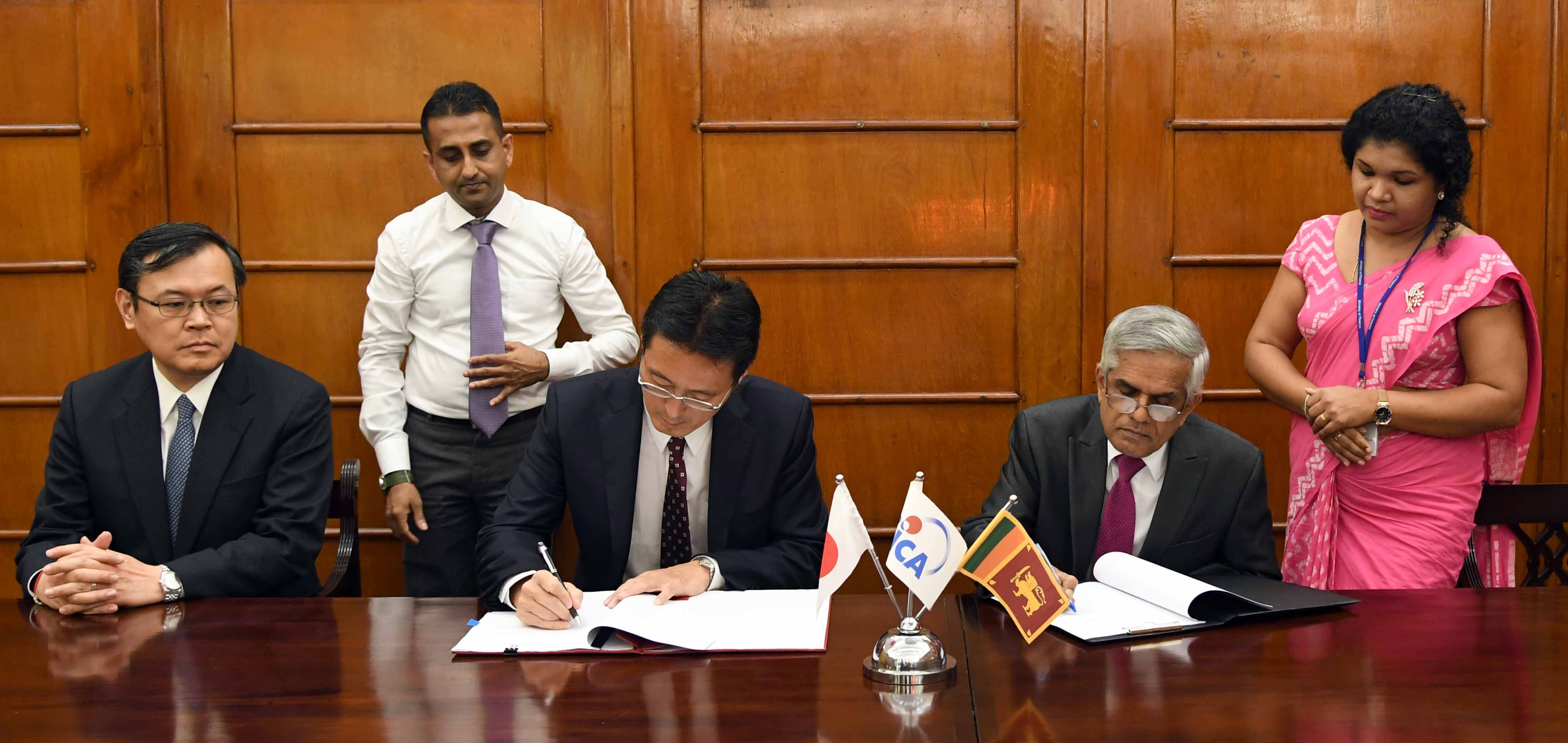News
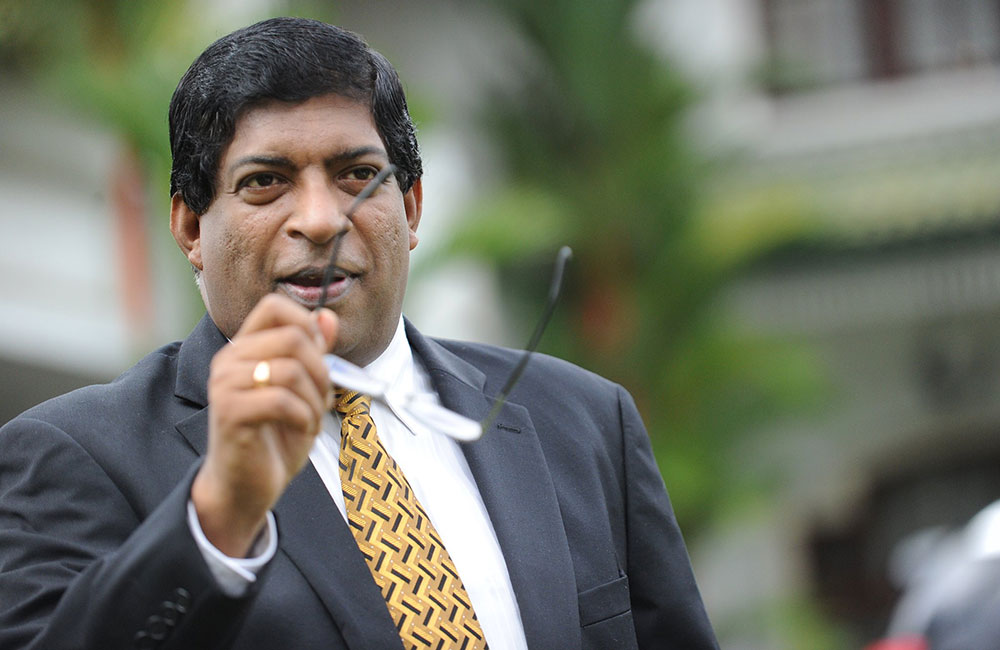
Ravi presents Cabinet memo seeking new office for his ministry
Power and Energy Minister Ravi Karunanayake has submitted a memorandum to the Cabinet of Ministers seeking approval to procure a new office space to house his Ministry.
The Power and Energy Ministry is currently located at Ananda Coomaraswamy Mawatha in Colombo 7, which is part of the Ceylon Workers’ Congress (CWC) headquarters.
The Minister has noted that a new building has to be taken out by the Ministry since the existing term of the lease period of No. 72, Ananda Coomaraswamy Mawatha, Colombo 7 will be terminated by 31 July 2019.
The Ministry has reportedly called for tenders with regard to a new office space and a favourable alternative had been presented to the Ministry.
The Minister’s Media Spokesperson Sulakshana Jayawardene has told the media that it was understood that presently, the office space was not suited to continue their functions as a ministry.
“The building does not have the required facilities for the Ministry to engage with diplomatic missions and international agencies,” Jayawardene has told the weekly English newspaper, The Sunday Morning.
The memorandum to the Cabinet has also stated that the complex was old with a decomposing roof and that on rainy days water leakages could be identified.
Jayawardene has noted that the current building was not sufficient for the office staff to carry out their duties due to a lack of office space.
“The Cabinet is yet to approve the request made by the Ministry,” Jayawardene has added.
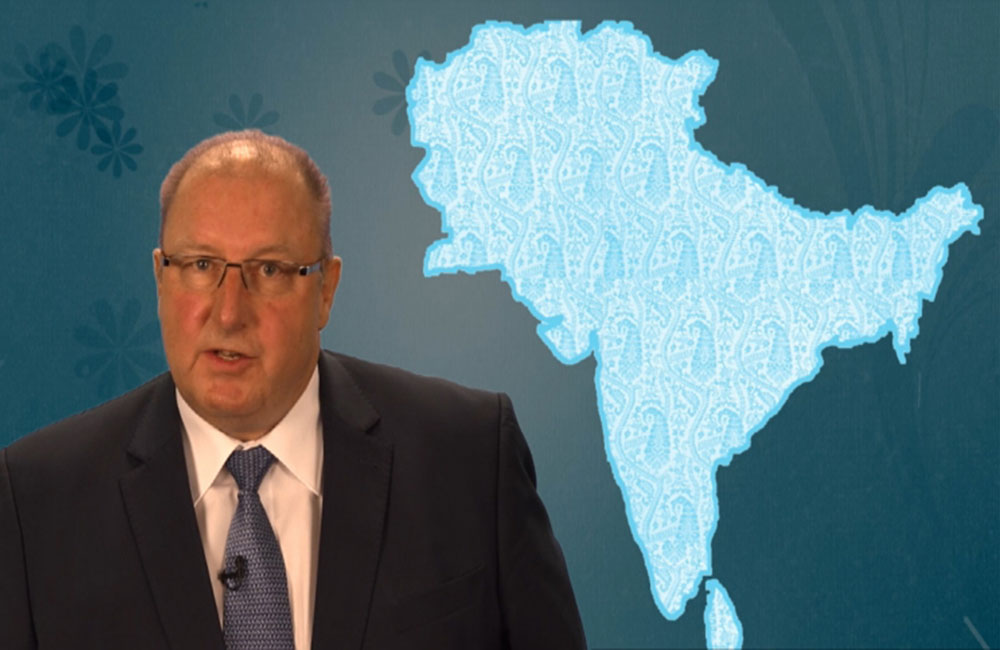
World Bank assures continued assistance to Sri Lanka
World Bank Vice President for South Asia Region, Hartwig Schafer said that the World Bank will increase assistance to Sri Lanka under three of its new operations which include the agriculture sector faced with climatic vagaries, irrigation, renewable energy, climate resilience operations and renovation of tanks in rural areas, the President's Media Division said in a statement.
Schafer made these remarks when he called on President Maithripala Sirisena at the President’s Office today (18). Referring to the Easter Sunday terror attack and its impact on economy, he said that the World Bank would provide monetary assistance to reduce budget gap so that Sri Lanka could continue global borrowings with a sound economic footing.
President Sirisena expressed his gratitude to the World Bank for long standing financial support to Sri Lanka and underscored the World Bank’s support extended to Sri Lanka in the aftermath of the Easter Sunday attacks.
Expressing gladness over the quick recovery made by Sri Lanka after the terrorist attack, WB Vice President said that the global community stands by Sri Lanka at this moment of need.
Schafer, who is in Colombo to chair the World Bank Senior Regional Managers Meeting, said that the Bank decided to hold its annual session in Colombo to show solidarity with Sri Lanka as the country is trying to restore normalcy after the terrible terrorist attack on Easter Sunday.
He congratulated Sri Lanka for rising to the level of Upper Middle Income Country and said it’s a testimony of the country’s resilience.
WB Country Director Idah Z Pswarayi-Riddihough, IFC Country Manager Amena Arif, Senior Operations Officer Anne-Kartin Arnold and Additional Secretary to the President, Esala Weerakoon also took part in the discussion.
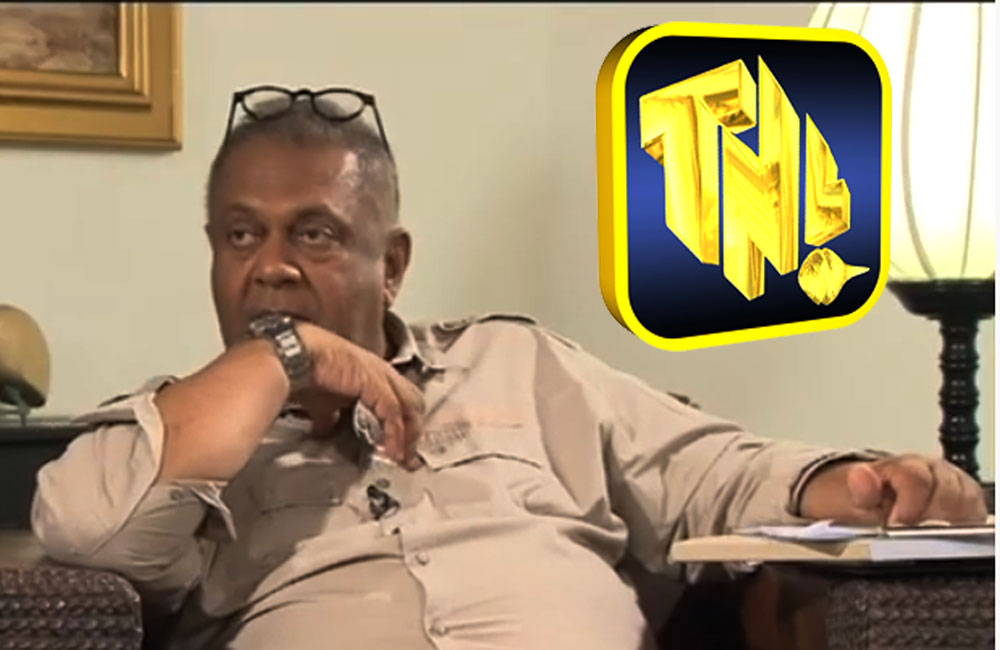
Why Mangala will not sue TNL!: Here's what the Minister has to say
Minister Mangala Samaraweera has directed his lawyers to file cases demanding Rs. 1000 Million from Thiniyawala Palitha Thera for levelling false allegations against him and another Rs. 1000 Million each from Hiru Network head Reno De Silva and Derana Network head Dilith Jayaweera for publicizing the allegations without any verification.
However, while TNL had given more widespread publicity to Thiniyawala Thera’s comments, the Minister failing to take any legal action against the channel is now being questioned on social media. This is because TNL had given the news story almost 4 minutes of air time where the Thera made a number of false allegations against the Minister.
Do people watch that channel?
However, when asked about this, Minister Mangala Samaraweera said TNL is not a channel watched by the people of the country and therefore he felt no need to take legal action against them.
Noting his time as Minister of Media, he said that he was well aware of the ratings of each channel and therefore he felt there was no necessity to waste money to take legal action against a channel like TNL.
Meanwhile, it is reported that a Media Head in the Prime Minister's Media Unit, Ishini Wickremesinghe had intervened and pushed for the clips of Thiniyawala Thera making allegations against Minister Samaraweera to be telecasted on Rajapaksa aligned media. A close associate of Minister Mangala Samaraweera confirmed these reports.
A Personal Grudge
According to him, Ishini Wickremesinghe had once served as the Private Secretary to the Minister and due to a clash of views, she is now harbouring a personal grudge against the Minister.
Support for her Uncle or Gota!
He also added that during a conversation with the Minister, Ishini had once commented saying “If my Uncle does not get the Presidential candidacy, then I will work towards ensuring that Gotabhaya Rajapaksa is brought into power." This had led to a heated discussion about bringing a military-like dictator Gotabhaya to power. The Minister had opposed this view saying he cannot condone putting the country’s people in danger in order to gain power. “The Minister had then informed her to resign from the post of private secretary,” he added.
According to him, since then Ishini has been nursing a personal grudge against the Minister. TNL had even aired a special feature during its news telecast thereafter to mark the birthday of Gotabhaya Rajapaksa.
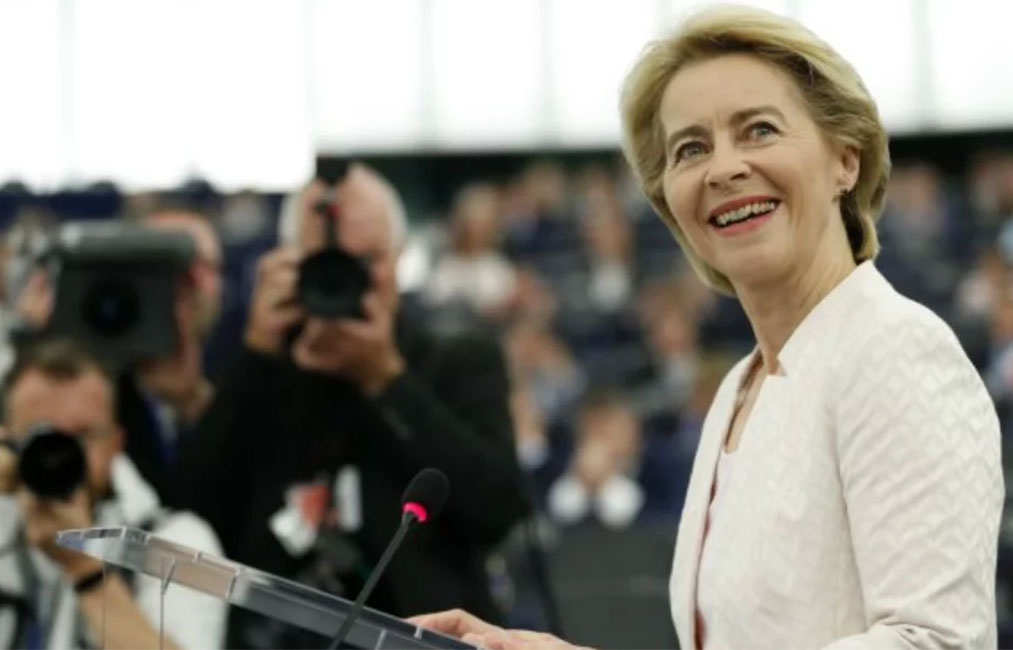
Von der Leyen elected as the first female president of the European Commission
Ursula von der Leyen has been confirmed as the new president of the European Commission and has set out her vision for her five-year term.
The first female president and the first German in the job for more than 50 years, von der Leyen only narrowly won the backing of the European Parliament on Tuesday, with 383 MEPs voting for her, just nine more than the minimum needed to secure a majority, but below the 400 threshold that would signal stable support for her leadership and policies over her term.
Von der Leyen faced considerable opposition, partly because she was not one of the European Parliament’s chosen spitzenkandidaten who were aligned with the European Parliament’s competing political blocs, but instead emerged through negotiation among Europe’s national leaders.
Von der Leyen won support from MEPs through a series of left-leaning policies outlined in her address to the parliament on 16 July, winning over the Socialists and stressing the importance of her being the first woman to be nominated to the position.
Her biggest cross-party promise to MEPs is to allow the parliament the right to propose legislation – a function that has been exclusively the European Commission’s until now.
The concession is a response to criticisms of the European Union’s workings, especially from populists and nationalists who have attacked its institutions as anti-democratic, and who made major gains in the recent European parliament elections.
An ambitious EU environmental programme, including a ‘Green Deal’ vision was also contained in her speech, with the offer of billions of euros in investment and a new EU carbon border tax, with the aim of achieving carbon neutrality across member states by 2050.
Von der Leyen takes over from Jean-Claude Juncker on 31 October – the very same day that the UK is due to leave the European Union.
Boris Johnson, set to be the next British prime minister, is currently pledging to fulfil this, with or without a withdrawal agreement, although he may well find his way blocked by MPs in Westminster.
Von der Leyen said she would be open to Brexit being delayed further “for a good reason” but insisted the withdrawal agreement would not be renegotiated, despite Johnson’s determination to drop the Irish ‘back stop’, so reviled by the Conservative party.
After her appointment was confirmed by the European Parliament vote, von der Leyen said: “The trust you place in me is confidence you place in Europe. Confidence in a united and strong Europe, from east to west, from south to north. The confidence in a Europe that is ready to fight for the future rather than fight against each other.”
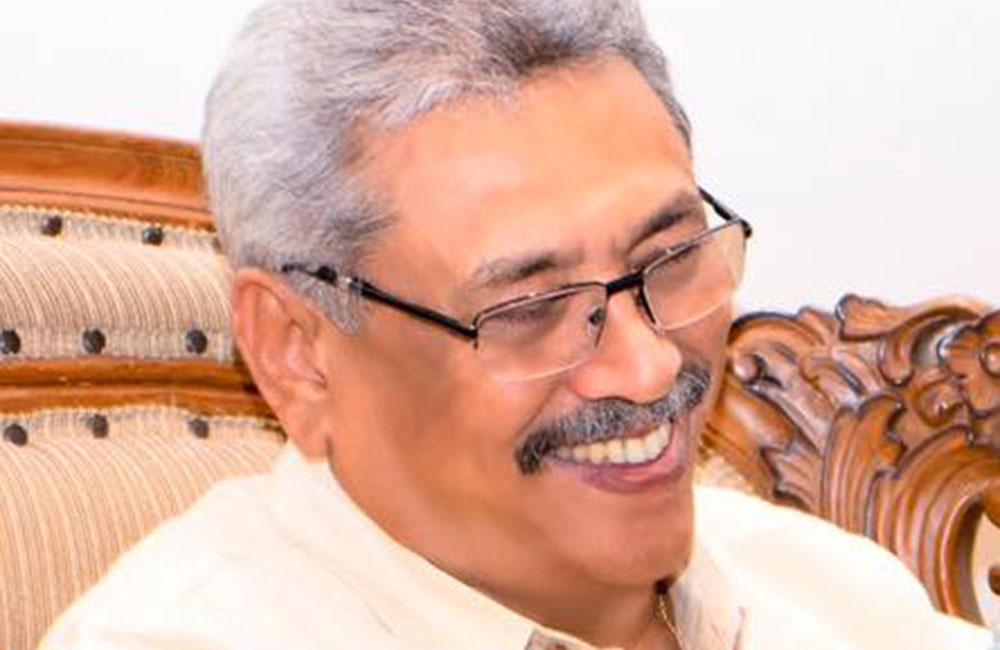
Gota not in US citizenship list?
The April - June quarterly report compiled by the Internal Revenue Service (IRS) in the US which consists of a list of names of those who relinquished their US citizenship does not include the name of Gotabhaya Rajapaksa.
The IRS releases a list of names of those who relinquished their US citizenship once every quarter which includes names of those who gave up their citizenship in the last quarter.
Though the list of the names relating to the June 30 quarter has not been officially released in the website of the Federal Registry, it is said to have already been compiled. It is usually published 30 days after the end of the quarter.
Prior to August 10th!
According to sources, the SLPP has put off naming their Presidential candidate to August 10 to check if Gotabaya Rajapaksa’s name would appear in the list and decide if the candidacy would be presented to him.
Following the June quarter list, the next one would be released for the quarter ending on September 30. This list would only be released in mid-October.
Therefore, if his name does not appear in the June list, then it is likely he will not be granted the candidacy, sources said.
Two interviews:
Following the submission of documents to relinquish one's citizenship, he is subjected to interviews over the phone and in person. Thereafter, a background check of the person is carried out by the Internal Revenue Service and the Department of Homeland Security (DHS) before he is relinquished of his citizenship.
Furthermore, the section relating to the renunciation of citizenship abroad on the US State Department's website clearly states that "...the act of renouncing U.S. citizenship does not allow persons to avoid possible prosecution for crimes which they may have committed or may commit in the future which violate United States law, or escape the repayment of financial obligations, previously incurred in the United States or incurred as United States citizens abroad."
After the individual faces these interviews and is cleared by the respective state agencies, his name is added to the list after six months.
The US government also provides a certificate to such individuals after about a year once the above-mentioned interviews are carried out. However, according to sources, it is unlikely the US government will revoke his citizenship as there are two cases being heard against him in the US courts.
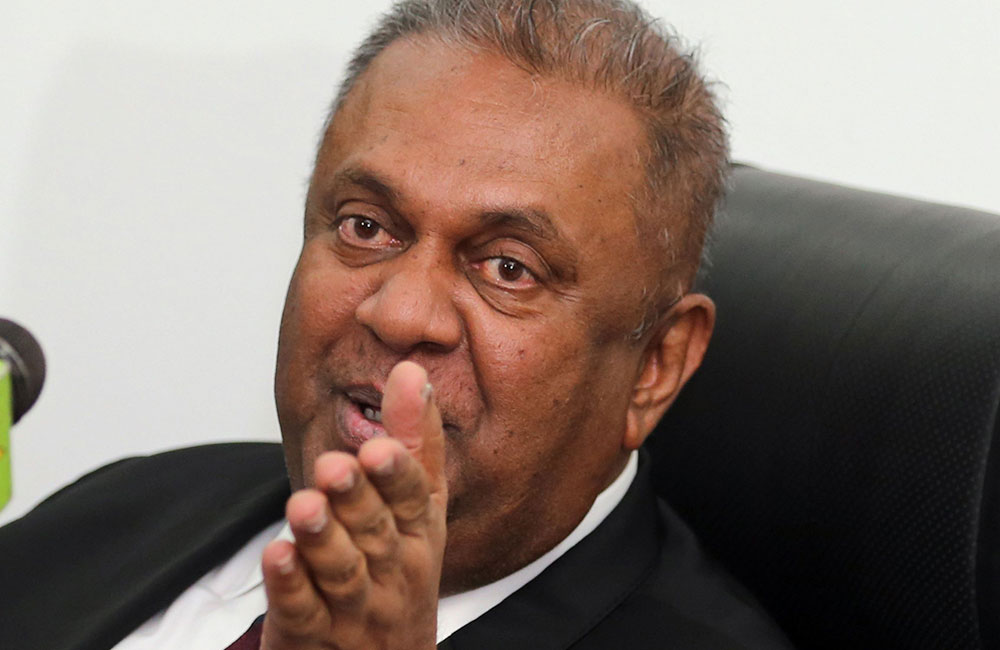
Mangala to courts over Thinayawala Thera's mudslinging
Minister of Finance Mangala Samaraweera claims he has now been given an easy opportunity to become a billionaire all thanks to Thiniyawala Palitha Thera. Minister Samaraweera, who is currently abroad on an official visit, put out a tweet on Thursday with regards to the statement made by Thiniyawala Thera at a press briefing held yesterday (17).
The Minister also confirmed that he plans to file a defamation case demanding Rs. 1 Billion for the damage caused to his good name.
He also said he would file similar cases against television channels ‘Ada Derana’,’Hiru’ and several other websites such as ‘Lanka C News’ which publicized the comments made by the Bhikku in a malicious manner without any further verification.
The reason behind mudslinging?
“Everyone in the country knows why this Priest is slinging mud at me. I removed him from the Director Board of Lanka Hospitals. That was based on a policy decision. I do not appoint any clergy to Director Boards functioning under me as I feel it is unsuitable,” he said.
“Anyone can say what they please but Media must be more responsible when publicizing such news. I was not even the Subject Minister during the time periods being mentioned by the Thera. The media has not even fact-checked these and published the story in a malicious manner because I have stopped giving them advertisements,” the Minister added.
The Minister had ordered the agencies under his Ministry to refrain from giving advertisements to the channels following the Easter Sunday attacks due to the racial line of reporting carried out by them.
Whose contract?
The Minister also said he would make further revelations about the comments made by Palitha Thera on his return to Sri Lanka.
“I will not only reveal the politicians behind the Thera’s comments but their corrupt practices where they stole public property,” he said.
The video below also gives a further explanation as to why the Thera has commenced a mud-slinging campaign against the Minister.
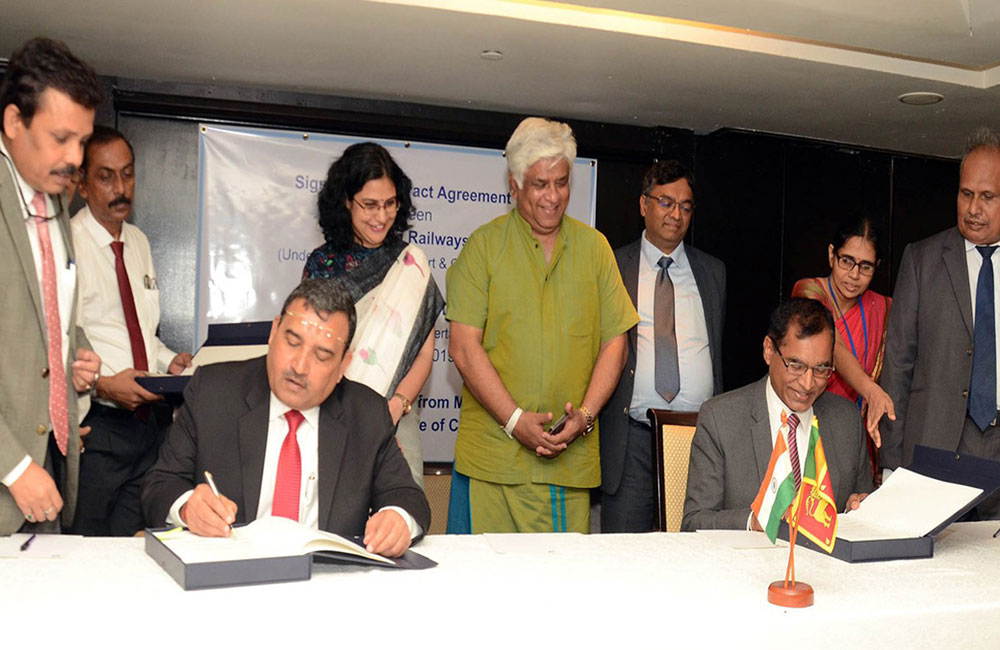
India to upgrade 130 km railway track connecting Maho and Omanthi
The Sri Lankan government on Thursday signed a USD 91.26 million contract with India to upgrade 130 kilometres long railway track connecting Maho and Omanthai town of the Island Nation.
The agreement was signed between IRCON International Limited and Government of Sri Lanka under the Indian Concessional Financing Scheme, a statement by the Indian High Commission in Colombo read.
The agreement includes the upgradation of 12 crossing stations, seven halt stations, and 78 level crossings between Maho and Omanthai. The statement noted that this would be the first upgradation of this 130-kilometre long railway line in over a hundred years.
The project is expected to double the speed potential of railway track from the current speed of 60 km to 120 km per hour, as well as reduce its maintenance cost. In addition, it will improve the travel comfort of passengers and contribute to the modernisation of Sri Lankan railways.
"The contract agreement was signed by Sunil Kumar Choudhury, Chairman & Managing Director, IRCON International Limited and LP Jayampathy, Secretary, Ministry of Transport and Civil Aviation of Sri Lanka, in the presence of Arjuna Ranatunga, Minister of Transport and Civil Aviation of Sri Lanka," the statement read.
India has so far committed lines of credit worth around USD 1.3 billion for the development of the Railway sector in Sri Lanka. The restoration of arterial railway lines, connecting the North and the South after decades of conflict, was undertaken under Indian concessional financing.
The tsunami-affected Southern Railway line was also upgraded under the Indian Line of Credit. India has so far upgraded around 300 kilometres of railway track and provided modern signalling and telecommunication system for around 330 kilometres of track in Sri Lanka.
Thursday's agreement is in line with India's efforts to partner with Sri Lanka for people-oriented connectivity projects in the Island Nation.
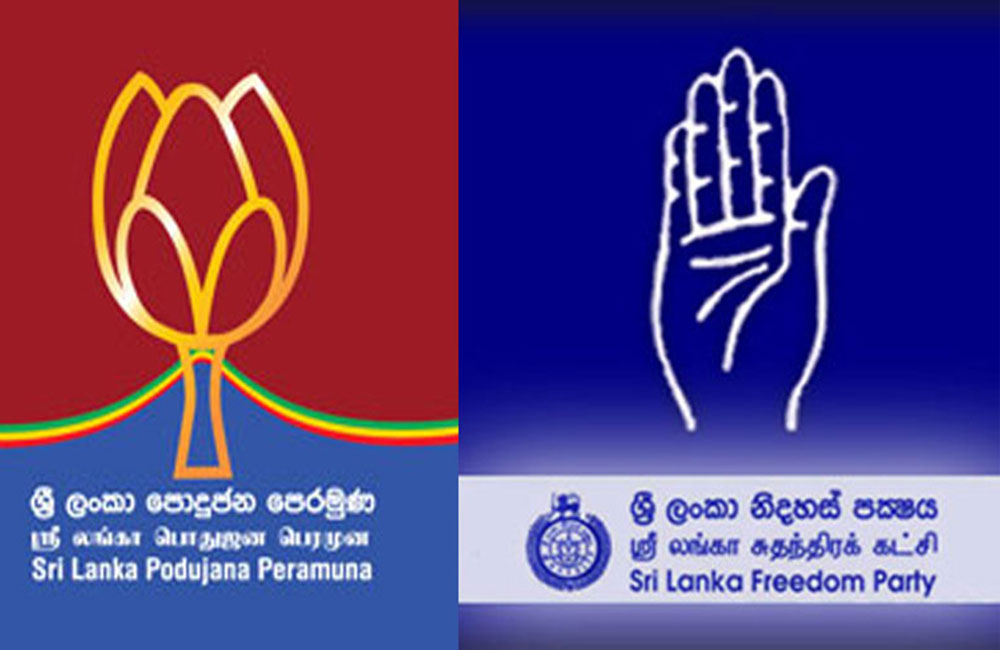
SLPP-SLFP political alliance over?
Talks to form a political alliance to contest in the upcoming polls between President Maithirpala Sirisena led Sri Lanka Freedom party (SLFP) and Opposition Leader Mahinda Rajapaksa led Sri Lanka Podujana Peramuna (SLPP) has come to an end, it is learnt.
The SLFP and SLPP held six rounds of talks on forming an alliance and the final round of talks concluded with both sides unable to come to an agreement on the structure of the proposed alliance.
A senior SLPP member told The Leader that the party was not agreeable to give the lion share of the proposed alliance to the SLFP.
“In the past, the SLFP held the lion share of all political alliances formed by the party. But it cannot be so this time around,” the SLPP member said.
Also, the SLPP is not prepared to field a candidate at the next presidential election who is not a member of the party. This has ruled out the SLFP’s moves to field its party nominee as the candidate of the proposed alliance at the next presidential election.
Meanwhile, SLFP General Secretary, MP Dayasiri Jayasekera says the SLFP was not prepared to support a candidate who would be fielded by the SLPP at the next presidential election without the consent of the SLFP.
He said that if the SLFP and SLPP were to work together at future elections, the candidate fielded by such an alliance should be done with the consent of both parties.
“Otherwise, we as a party will have to make a decision,” Jayasekera has said.
A few weeks back, the SLFP MPs handed over a letter to President Sirisena asking him to become the SLFP’s candidate at the next presidential election.
SLPP candidate is Gota!
It is in this backdrop that SLPP loyalist, MP Prasanna Ranatunge has said to a Sinhala weekly newspaper that the Rajapaksa family has already decided to field former Defence Secretary Gotabaya Rajapaksa as the party’s candidate at the next presidential election.
He has further stated that the SLPP would stand to lose some of its votes if it were to form an alliance with the SLFP.

Sinopec sets up oil unit in Hambantota port
China Petroleum and Chemical Corp, also known as Sinopec Corp, said it has set up a fuel oil company in Sri Lanka as it looks to supply fuel to ships along a major maritime route, reported Reuters.
The new unit, called Fuel Oil Sri Lanka Co Ltd, has been registered in Hambantota on the southern tip of the country, according to a report on the website of Sinopec Group, parent of Sinopec Corp.
Fuel oil is a refined product mostly used as bunker fuel for ships and is also burned in power stations.
The move marks the latest investment in Sri Lanka by China, which sees the South Asian island nation as a pivotal part of its Belt and Road Initiative infrastructure plan.
Sinopec stressed the strategic location of Hambantota port on the Indian Ocean along a key shipping route between the Suez Canal and the Malacca Strait, which is transited by two-thirds of global oil shipments. The market to supply fuel to ships had "huge" potential, it said.
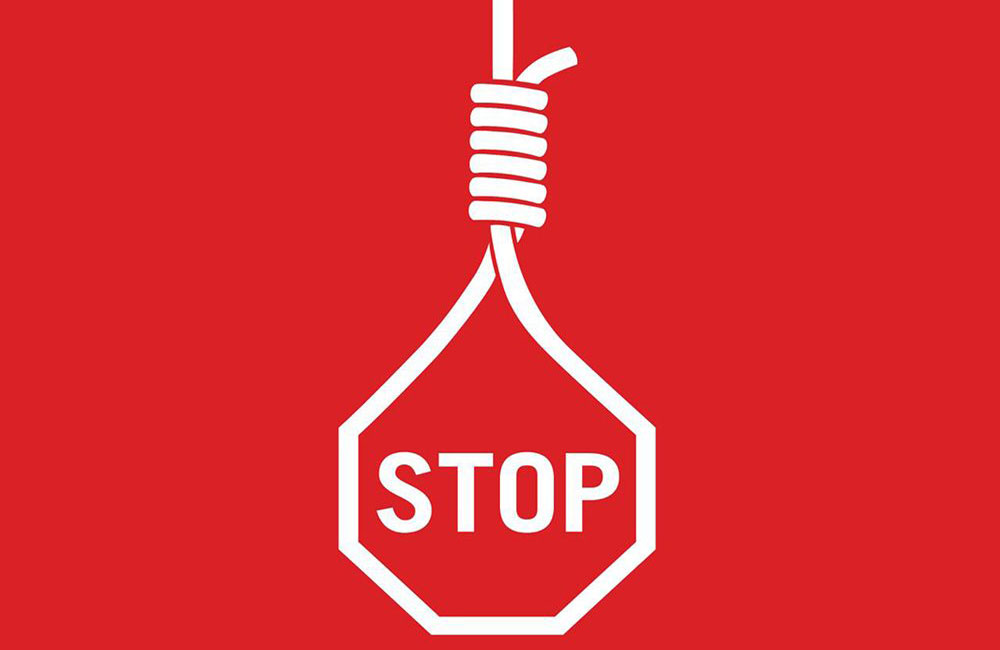
EU strongly opposed to re-enforcing capital punishment in SL
A group of United National Party (UNP) parliamentarians had today met with the Heads of Mission of France, Germany, Italy, Netherlands, Romania and the UK High Commission in Sri Lanka to discuss the controversy surrounding moves to re-enforce the death penalty in Sri Lanka.
The delegation of UNP MPs included Bandula Lal Bandarigoda, Kavinda Jayawardena, Hector Appuhamy and Mujibur Rahunan.
Following the meeting between the UNP MPs and the EU Heads of Mission, the Delegation of the European Union (EU) issued the following statement in agreement with the Embassies of France, Germany, Italy, Netherlands, Romania and the UK High Commission.
“The EU Heads of Mission (HoMs) received a visit by a group of United National Party parliamentarians today to discuss the death penalty,” the statement has said.
The Delegation of the EU has further noted that during the meeting, the HoMs had restated the strong and unequivocal opposition of the EU and its Member States to capital punishment in all circumstances and in all cases.
“The HoMs reiterated their call to Sri Lanka to maintain its moratorium on the death penalty with a view towards complete abolition,” the EU has added.
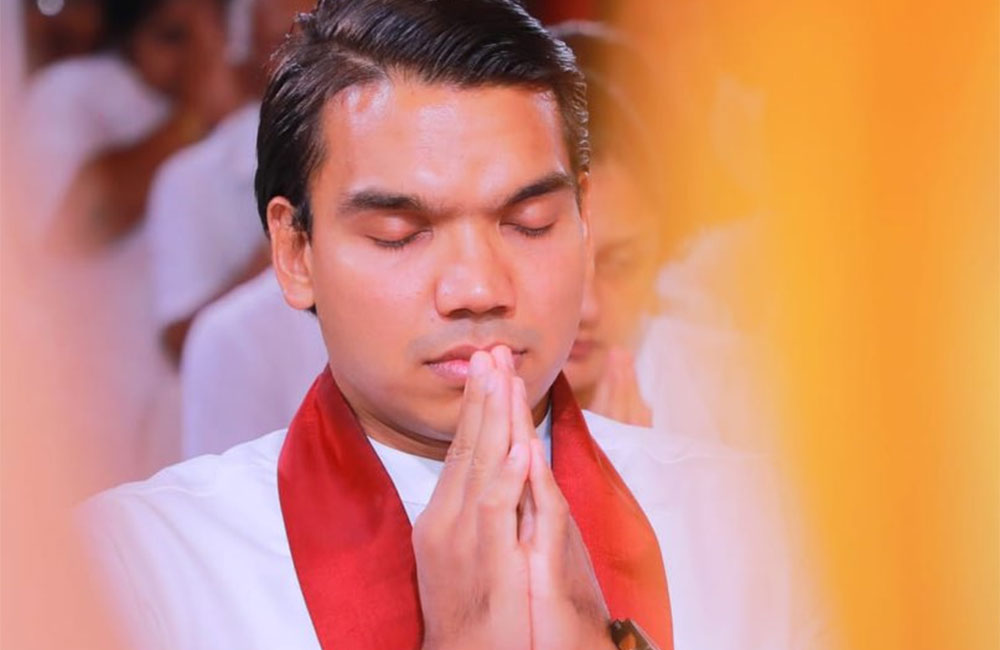
Namal's travel ban lifted
The two cases filed by the Financial Crimes Investigation Department (FCID) against Namal Rajapaksa and three others for their alleged involvement in laundering money amounting to LKR 30 million through Gowers Corporate Services (Pvt) Limited between 2013 and 2014, were postponed till October 24 by Fort Chief Magistrate Lanka Jayarathne. Namal Rajapaksa is accused of using parliamentary privileges for personal benefit
Chief Magistrate has postponed the case as the advice sought from the Attorney General has not been received. Furthermore, after considering requests made by defence counsels, the Chief Magistrate lifted the travel ban imposed on Namal Rajapaksa, Sujani Bogollagama, Nithya Senani Samaranayake and Sudarshana Bandara.
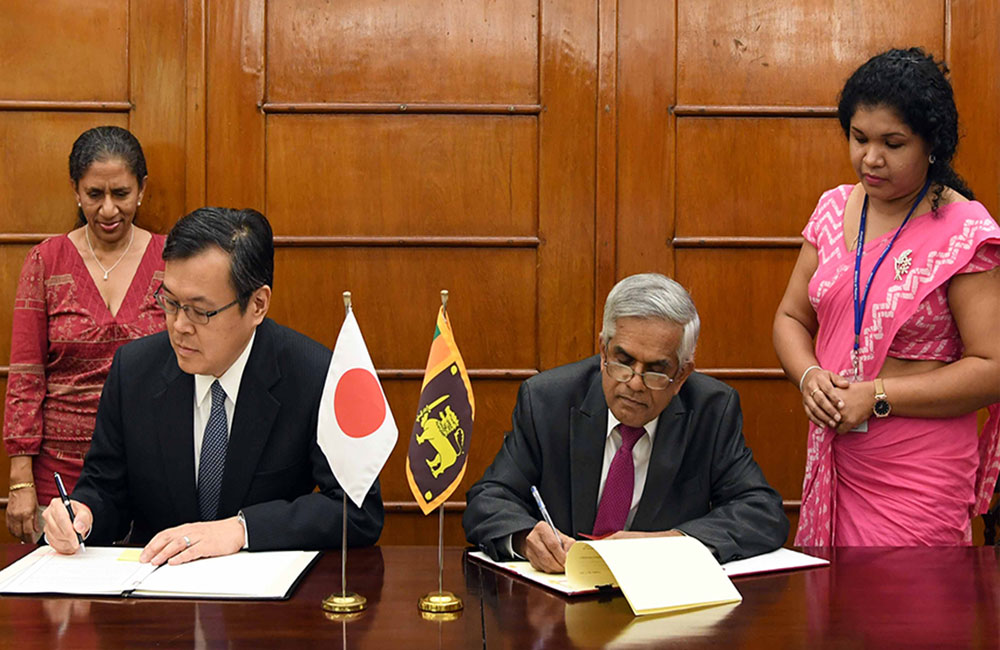
Japanese scholarships for Sri Lankan public sector
The Japanese government which introduced the Japanese Grant Aid for Human Resources Development Scholarship (JDS) programme in Sri Lanka for public sector officials in 2010 extended the scholarship programme, the Finance Ministry said in a statement. The JDS programme provides opportunities to the executive level public sector officials to undergo Masters Degree and PhD programmes in prominent universities in Japan.
Accordingly, the First Framework (2010-2013) and the Second Framework (2014-2017) of this programme were successfully completed in 2013 and 2017 respectively, the Ministry of Finance noted.
The Third Framework (2018–2021) was started in 2018 to continue this programme for further period of four years. After considering the necessity of further career development of JDS fellows, the Japanese government has agreed to offer scholarships for PhD programmes for two candidates per batch. Accordingly, 150 (15 per year) opportunities for Master Degree programmes and 04 opportunities for PhD programmes have been provided under this scholarship programme.
The selection process of the second batch of the Third Framework has already been completed and the selected officials are scheduled to commence their studies in September 2019. In order to facilitate these officials, the Government of Japan has agreed to offer a grant assistance of Japanese Yen 263 million (approximately Rs. 420 million) to Sri Lanka in 2019.
The Government of Sri Lanka expects that the public officers who will be benefited under this programme will contribute to the social and economic development of the country in a productive manner with self – confidence and also contribute to strengthen the existing bilateral relationship between two countries, the Ministry of Finance said.
Two Exchange of Notes between the two Governments and Grant Agreements between Sri Lanka and the JICA for the implementation of the Human Resources Development Scholarship Programme were signed on Wednesday at the Ministry of Finance.
Agreements were signed between Japanese Ambassador in Sri Lanka Akira Sugiyama, Chief Representative of JICA Fusato Tanaka and Treasury Secretary Dr. R H S Samaratunga.
Page 324 of 531

